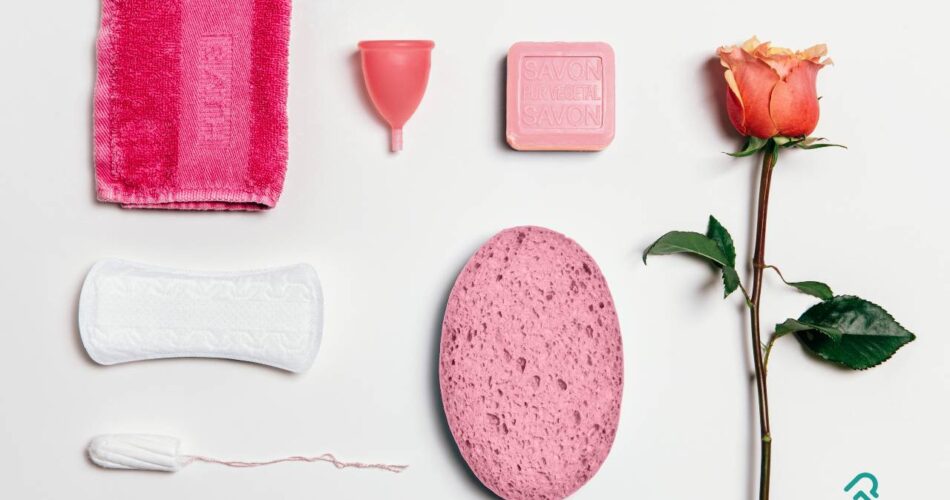Obese individuals often use tools like grabbers or bidets for hygiene after using the toilet. Long-handled wipers are also popular for maintaining personal cleanliness.
Dealing with obesity presents various challenges, one of which is personal hygiene. Difficulty reaching certain areas of the body is a common issue for those who are obese. To overcome this, many turn to assistive devices designed to aid in personal care.
Long-handled wipers, for instance, extend reach, allowing for effective cleaning without requiring extreme flexibility or dexterity. Bidets provide a hygienic solution by using water streams for cleansing, reducing the need for physical wiping altogether. Assistive tools are not only practical but also promote independence and dignity in personal hygiene routines for individuals dealing with obesity. Their use helps prevent skin irritation and infections, which are potential risks when proper cleanliness is not maintained.

Credit: www.umc.edu
The Challenge Of Personal Hygiene In Obesity
Struggling with obesity involves more than managing weight. Personal hygiene can become a tough daily task. It’s about comfort, health, and dignity. Let’s dive into the world of those facing such challenges and understand their journey.
Physical Restrictions And Hygiene Obstacles
Extra weight can limit movement, making it hard to reach areas of the body. For many, this means trouble with basic hygiene practices. Special tools become a must for cleanliness.
- Extended reach tools: Options to help with reaching and cleaning.
- Assistance devices: Gadgets to aid in bathroom activities.
- Bidets: A sprayer that helps clean without bending or twisting.
Psychological Impacts On Daily Routines
Hygiene struggles often hurt a person’s self-esteem and mental health. The stress of daily hygiene can lead to avoidance and isolation.
| Challenge | Impact |
|---|---|
| Self-cleaning difficulties | Frustration, low self-worth |
| Dependency on tools or others | Feeling of loss of independence |
| Social stigma | Social anxiety, depression |
Supportive people and health professionals can help ease the burden. They encourage positive routines and provide emotional comfort.
Hygiene Tools For Those With Obesity
Hygiene is crucial for everyone, including those with obesity. Sometimes, extra weight can make it challenging to reach all areas of the body. This is particularly true when it comes to personal hygiene after using the restroom. Fortunately, several tools cater to the needs of individuals with obesity to maintain cleanliness and comfort.
Specialized Wiping Aids
For those who find it difficult to reach around their body, specialized wiping aids are a game changer. Designed with long handles and ergonomic grips, these devices extend one’s reach. They often feature a mechanism to hold toilet paper or wet wipes securely, enabling thorough cleaning without strain. Here’s a list of commonly used wiping aids:
- Bottom Buddy – A curved handle for better reach
- Freedom Wand – With a multipurpose head to attach different tools
- SelfWipe Toilet Aid – Designed for one-handed operation
Use Of Bidets And Handheld Showers
Bidets and handheld showers are another excellent solution for personal cleansing. Bidets are bathroom fixtures that use a water jet for cleaning, while handheld showers give users precise control. Here are the benefits of each:
| Bidet Benefits | Handheld Shower Benefits |
|---|---|
| Gentle and effective cleaning | Targeted washing and flexibility |
| Reduces the need for twisting | Ease of use for limited mobility |
| Eco-friendly option | Adjustable water pressure |
Many modern bathrooms now include bidets, but retrofit models that attach to regular toilets are also available. Portable bidets can be particularly useful for those on the go.
Techniques For Effective Self-cleaning
Self-cleaning can be a challenge for individuals who are obese. But, with the right techniques, it can be made easier. Let’s explore some effective methods for maintaining personal hygiene with comfort and ease.
Proper Wiping Methods
Choosing the right tools is essential for cleanliness. Strong, soft toilet paper or moistened wipes can be very effective. Wipes should be hypoallergenic to avoid skin irritation. Sometimes, an extension tool can help reach areas that are difficult to get to.
Step-by-step approach:
- Gently reach behind your back or between your legs.
- Hold the wiping material firmly.
- Press lightly against the skin and wipe slowly from front to back.
- Repeat until the area is clean.
- Dispose of the used materials properly.
Positioning And Movement Strategies
Good positioning can greatly aid in self-cleaning. Here, leverage is key.
For sitting:
- Lean to one side for better reach.
- Place feet firmly on the ground to maintain balance.
For standing:
- Slightly bend the knees and lean forward.
- Use one hand for support if needed.
Movement should be gentle to prevent any injury. Practice makes perfect. Over time, these strategies will come naturally and self-cleaning will become much simpler.
The Role Of Diet And Exercise
The Role of Diet and Exercise plays a crucial part in maintaining overall health, especially for individuals dealing with obesity. These factors not only impact a person’s well-being but also their ability to perform daily activities efficiently. This includes personal hygiene tasks that many people take for granted. Adopting changes in diet and exercise routines can greatly enhance mobility, making such tasks easier and promoting a more independent lifestyle.
Improving Mobility Through Weight Loss
Reducing excess body weight is pivotal for enhancing mobility. Through targeted weight loss, obese individuals can gain better access to areas of their body that require cleaning. Here are practical steps to kickstart this journey:
- Consult with a healthcare provider to define realistic weight loss goals.
- Begin a structured exercise plan focusing on low-impact activities like walking or swimming.
- Incorporate strength training to build muscle and support joints.
- Stay consistent with daily movements, such as gentle stretches to improve flexibility.
Dietary Adjustments For Easier Hygiene
Diet plays a significant role in weight management and can directly affect one’s ability to maintain personal hygiene. Here’s how a balanced diet aids this process:
- Opt for high-fiber foods to aid digestion and stay regular.
- Consume plenty of fruits and vegetables for essential vitamins and minerals.
- Choose lean proteins to build muscle without excess fat.
- Stay hydrated with water to help the body flush out toxins.
- Avoid sugary snacks and processed foods that contribute to weight gain.
Eating right not only assists in weight loss but also reduces the burden on the body during hygiene tasks. Simple nutritional changes pave the way for a healthier body and mind, making everyday activities more manageable.
Support Systems And Professional Help
Dealing with personal hygiene can pose significant challenges for individuals with obesity. The right support systems and professional help make a big difference. From family aid to specialized medical devices, several options facilitate personal care with dignity and ease.
Leveraging Family And Caregiver Assistance
Families and caregivers often play a pivotal role in personal hygiene for their loved ones struggling with obesity. Assistance includes:
- Emotional support to foster a positive environment.
- Physical aid in reaching difficult areas.
- Instruction on proper hygiene techniques.
Depending on each individual’s needs, family members might receive training to ensure they provide the best care possible.
Medical Devices And Occupational Therapy
Medical devices designed for hygiene support include:
| Device Type | Function |
|---|---|
| Extended toilet wands | Enable reaching and cleaning without strain. |
| Shower chairs | Provide a safe and comfortable bathing experience. |
| Grab bars | Assist with stability and movement within the bathroom. |
Occupational therapists specialize in aiding individuals to perform daily tasks. They can recommend the most suitable hygiene aids, teach effective techniques, and customize care routines tailored to individual needs.

Credit: www.mdpi.com
Advancing Dignity Through Innovation
For those living with obesity, daily tasks like personal hygiene can pose challenges. These challenges may impact a person’s dignity and quality of life. But the good news is, innovation brings solutions. Cutting-edge products and technologies now offer ways to make personal care tasks easier and restore independence. Let’s explore how these advancements are making a difference.
Emerging Products And Technologies
- Extended Reach Wipers: These tools help reach areas that are difficult to clean.
- Electric Bidets: A jet of water cleanses effectively, reducing the need for twisting and reaching.
- Bathroom Aids: Items like grab bars and supports offer stability during personal hygiene routines.
Companies are constantly seeking new ways to support hygienic practices. From simple tools to high-tech devices, the focus is on facilitating cleanliness with ease.
Fostering Independence And Self-respect
With the right tools, individuals living with obesity regain control over personal care. This control is essential for confidence and self-esteem. Products designed for ease of use ensure that everyone can maintain their hygiene without help. This autonomy is critical for a person’s sense of dignity and self-worth.
- Adaptive accessories: They reduce the need for caregiver assistance.
- Simple designs: Tools are user-friendly, making them accessible for all age groups.
- User empowerment: Encourages a positive self-image through independent personal care.
By prioritizing innovation in the design of hygiene products, companies foster a more inclusive and dignified society. Technology thus becomes a bridge to a more autonomous life for individuals facing daily challenges with personal hygiene due to obesity.

Credit: www.umc.edu
Frequently Asked Questions Of How Do Obese Wipe Themselves
How Do Obese Individuals Clean Themselves?
Obese individuals may use tools like bidets or extended wiping aids designed for better reach. Hygiene is sustained with regular showers, perhaps using handheld showers for easier access. It’s essential to maintain cleanliness to prevent infections and skin irritation.
What Are Wiping Aids For Obese People?
Wiping aids are devices that help extend reach for personal hygiene. These tools have long handles and a mechanism to hold and release toilet paper or wet wipes. They are designed to be ergonomic and easy to clean.
Can Obesity Affect Personal Hygiene?
Yes, obesity can impact personal hygiene, making it challenging to reach and clean certain areas of the body. It might require additional tools or techniques for effective cleaning and maintaining skin health.
Are Bidets Beneficial For Obese Hygiene?
Bidets can be very beneficial for obese individuals, offering a hands-free cleaning experience. They help maintain hygiene without the need for reaching and wiping, thus reducing strain and ensuring cleanliness.
Conclusion
Addressing personal hygiene for obese individuals requires compassion and practical solutions. Special tools and techniques can ensure cleanliness and dignity. Remember, self-care is a right, regardless of size, and seeking help is a sign of strength. Embrace confidence in every aspect of life.


